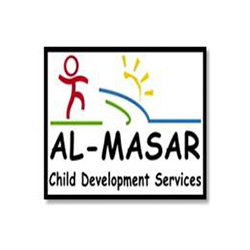Evaluation and Diagnosis
Seeking Professional Help Regarding Your Child’s Development

You are concerned about your child’s skills and have decided to take the next step and seek a professional’s advice regarding her development. It can be overwhelming when trying to determine where to start. Your child’s pediatrician can give you names of professionals that can help. They may include any of the following:
- Developmental Pediatrician- a medical doctor who is certified in pediatrics with sub-specialty training in developmental and behavioral pediatrics.
- Neurologist- a medical doctor who specializes in treating diseases of the nervous system. If necessary, a neurologist may recommend testing such as an MRI, EEG, EMG, blood tests, hearing/vision tests and genetic tests.
- Psychologist-a professional who evaluates and studies behavior and mental processes.
- Specialists in child development such as occupational, physical and speech and language therapists.
Each of these professionals has different areas of training and experience. They know how to work with children, even very young ones, to discover if your child has a delay or is developing within normal ranges. They may evaluate your child together or individually. As part of the evaluation, the team will start by asking you about your child’s birth and medical history. Then they will observe your child, while playing and talking to him and ask him to do certain tasks.
The assessment may include informal and formal types of assessment:
- Informal assessments usually entail the use of non standardized tests, developmental charts and observations of the child.
- Formal assessments usually entail the use of standardized tests - tests that must be administered according to prescribed time limits, instructional and scoring procedures, and administration guidelines. Scores are usually compared to the scores of a group that is similar to your child’s age group.
Irrespective of the diagnosis, what is important is that you will become aware of your child’s areas of strength, as well as areas that may benefit from further training
All of the above procedures will help the team find out how your child functions in the five areas of development:
- Cognitive development
- Communication development
- Social or emotional development
- Sensory- motor development
While it can be an uneasy time for parents, always know that you are taking the best step in learning more about how your child’s development and what you can do to help if it is needed.
Your child may or may not be given a medical diagnosis. Diagnoses may include developmental delays, learning difficulties, intellectual disabilities, autism or other neurological conditions such as cerebral palsy.
Irrespective of the diagnosis, what is important is that you will become aware of your child’s areas of strength, as well as areas that may benefit from further training. The team will also help guide you in your next step, which is the proper intervention for your child. This may include:
- Tips to stimulate your child’s development at home
- Medical/Therapeutic intervention (e.g. medication, diet, occupational, physical or speech and language therapy)
- Modification in your child’s school setting that will best accommodate your child’s needs
While it can be an uneasy time for parents, always know that you are taking the best step in learning more about how your child’s development and what you can do to help if it is needed.














